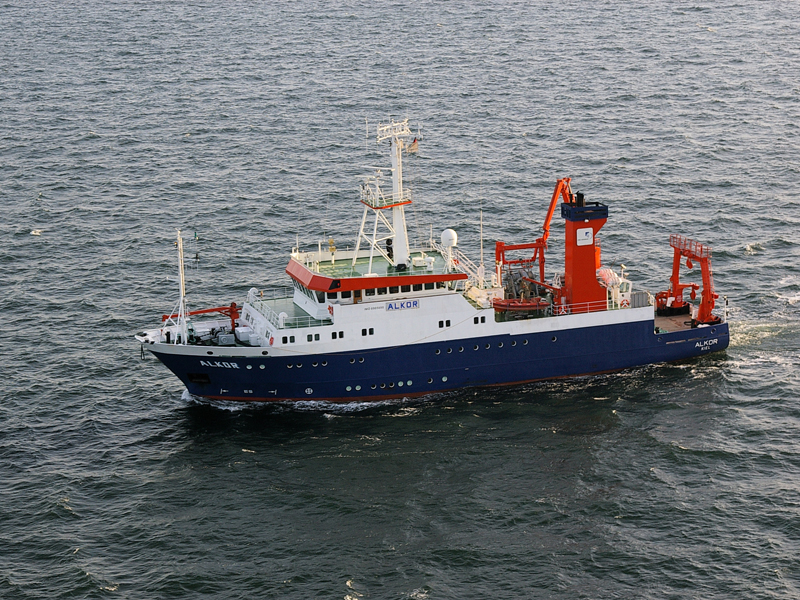ALKOR AL509
- Area:
- Ostsee
- Time:
-
15.05.2018 - 31.05.2018
- Institution:
- GEOMAR
- Chief scientist:
- Thorsten B.H. Reusch
Over the past 50 years, the Baltic Sea has undergone substantial changes in the context of climate change and increasing anthropogenic pressures, including warming, acidification, eutrophication, de-oxygenation, overfishing, and the spread of invasive species. Most of these changes have occurred much faster than on a global average, making the Baltic Sea a sort of time machine for changes to expect in other (coastal) areas. But what do all these changes mean for the ecosystems of the Baltic, and what are the ecological and economic consequences? These questions are difficult or impossible to answer with short-term scientific projects, which stresses the importance of long-term data series allowing insights into decadal scale changes.
The scientific work on board of RV Alkor during the cruises AL507 (April 2018, chief scientist Dr. Jan Dierking) and AL509 (May 2018, chief scientist Prof. Thorsten Reusch) continues one of the best long-term data series for the pelagic areas of the Baltic Sea. Specifically, we will continue multi-disciplinary lines of work that have been conducted annually since 1986, covering large parts of the deep basins of the Baltic (Kiel Bight, Arkona-, Bornholm- and Gotland Basin, and Gdansk Deep) and the corresponding salinity gradient from near marine to brackish conditions. Our approaches will include scientific pelagic fisheries, sampling of pelagic food webs (phyto- and zooplankton including ichthyoplankton and jellyfish, nekton), oceanographic measurements and hydroacoustics, and allow us to assess changes in species composition, biodiversity (including on the genetic level), food web structure and functioning, the spread of invasive species, and physical/hydrographic parameters. The 2018 cruises will also include a collaboration with visiting scientists from the University of Wisconsin (USA) on local evolutionary adaptations of copepods to the different environmental conditions along the salinity gradient of the Baltic. Moreover, the cruises since 2014 have been of particular interest, because after years of “stagnation”, several large inflows events have brought large amounts of highly saline, oxygenated North Sea water to the Baltic, raising the question how the ecosystems of the Baltic are reacting to this hydrographic “rejuvenation”. Both cruises are contributing to the international multi-partner projects EU Horizon 2020 GoJelly coordinated by the GEOMAR and EU BONUS BLUEWEBS, and to several additional projects of the Research Division Marine Ecology at GEOMAR.



